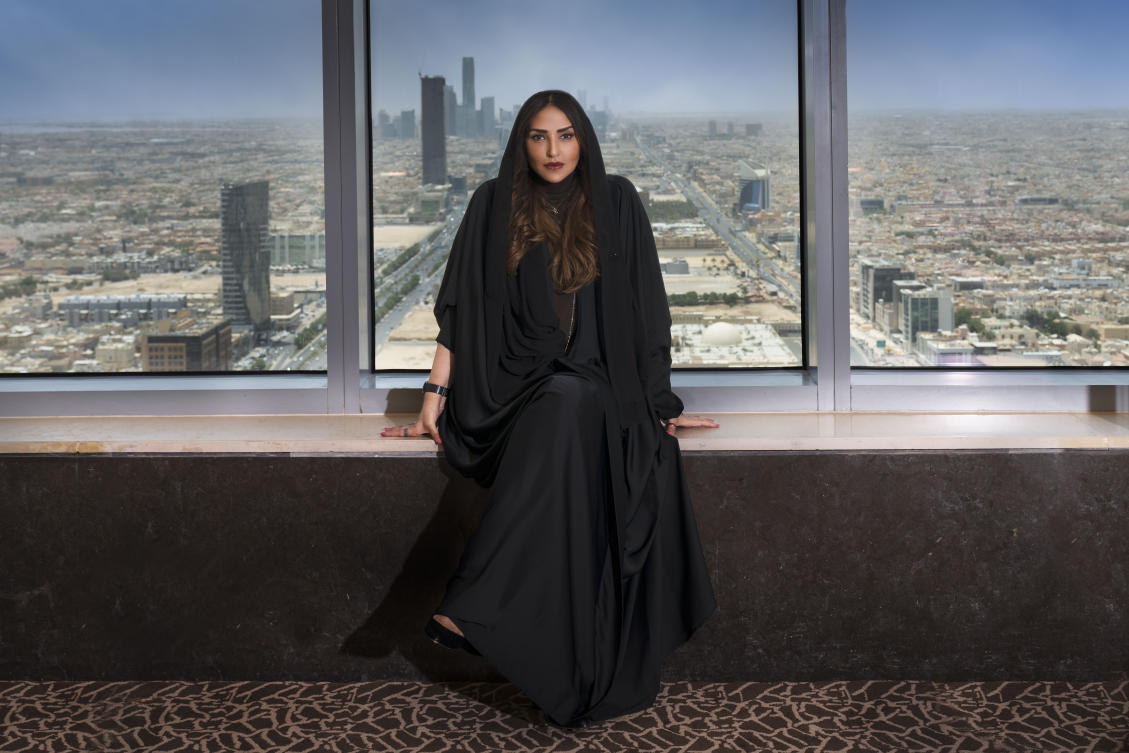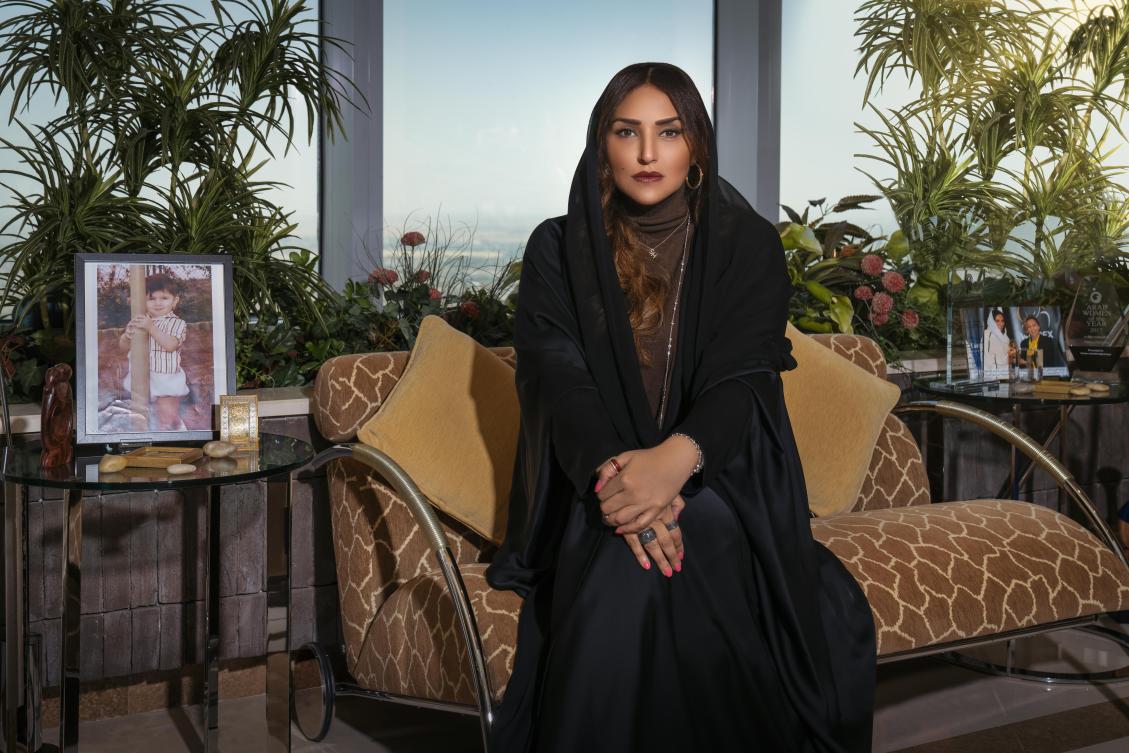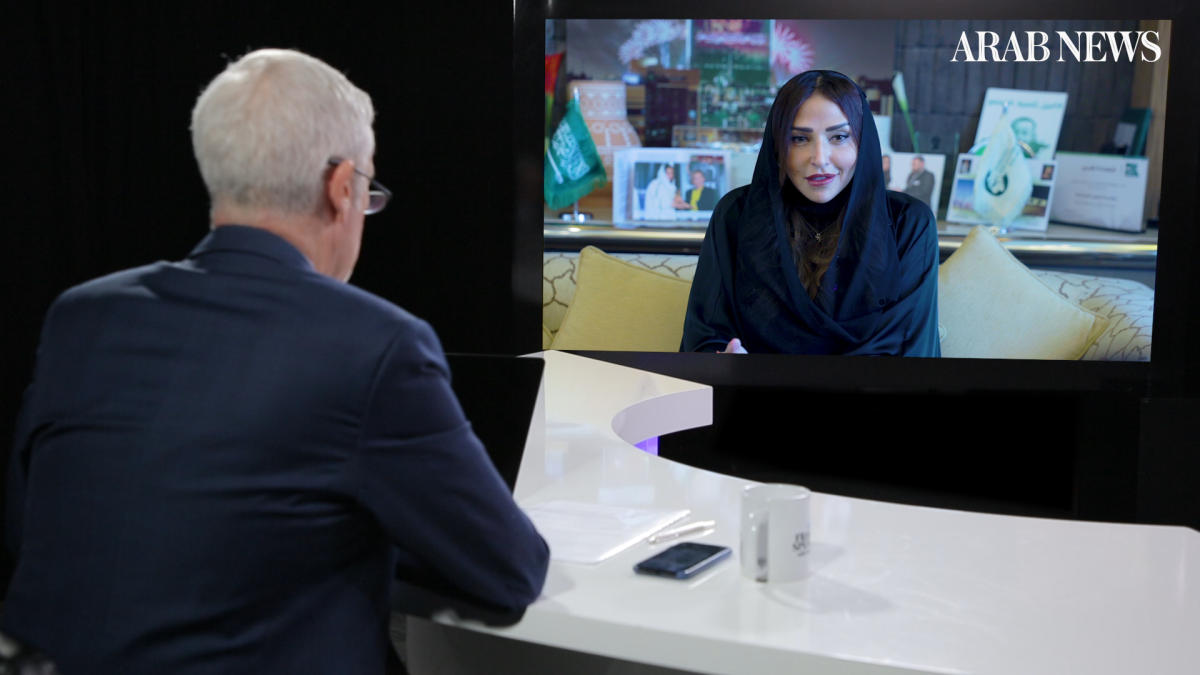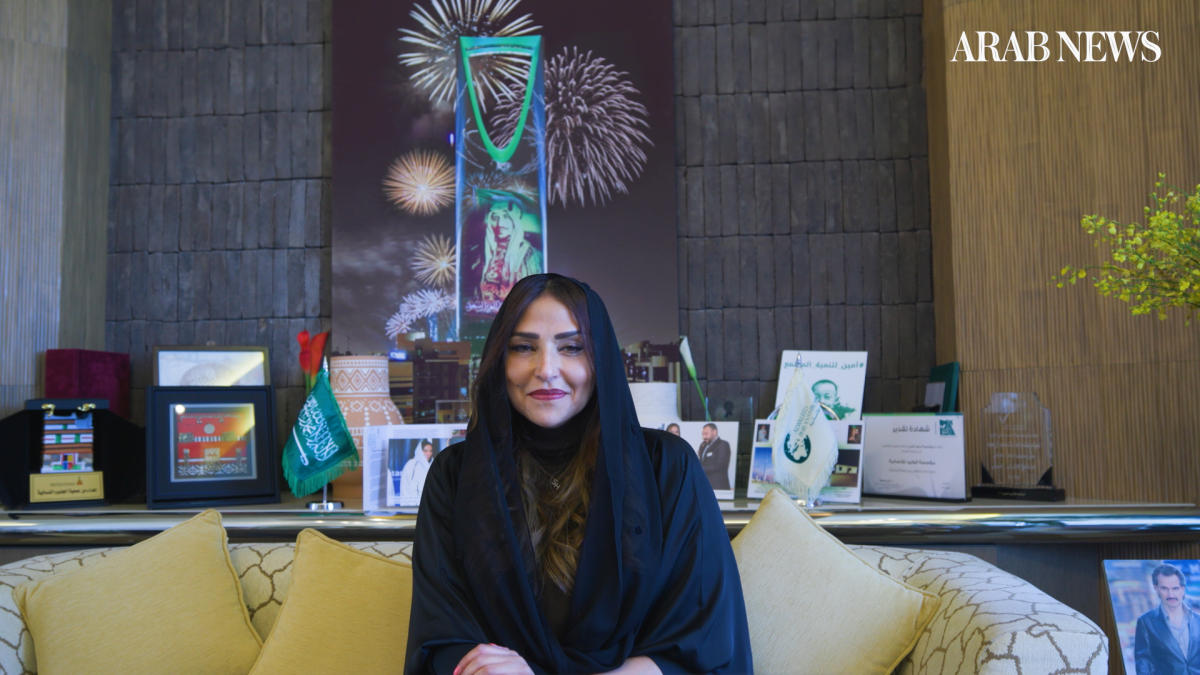DUBAI: Alwaleed Philanthropies has ridden the wave of the COVID-19 pandemic and is set to accelerate its strategy of “creative philanthropy” as the global recovery gathers pace, according to the woman in charge of the Riyadh-headquartered Saudi charitable organization.
Princess Lamia bint Majed Al-Saud, secretary-general of the 40-year-old organization set up by Prince Alwaleed bin Talal, told Arab News that the pandemic had been a demanding time for the organization as it faced extraordinary demands on its resources, but that the time had come to apply the lessons learned during the humanitarian and economic crisis.
“The United Nations came out with a very unique name for doing good in the world, which is ‘creative economy.’ So, you have to be very creative moving forward after the pandemic — how you’re going to reach your beneficiaries, and how you can provide support, and how you can empower and do good in general,” she said.
Her comments came in the course of an interview with “Frankly Speaking,” the series of video interviews with leading policymakers and thinkers in the Middle East and the world.
Princess Lamia, who is regarded as a role model for the empowerment of women in Saudi Arabia under the reforms of the Vision 2030 strategy, also spoke of the progress women have made in the Kingdom, the place of art and culture in the global philanthropy scene, and the need to transcend the “clash of civilizations” approach to relations between the Islamic world and its international neighbors.
Alwaleed Philanthropies responded after the outbreak of the virus last year with a $30 million initiative to provide essential medical goods and services to poorer countries around the world struggling with their pandemic response.
This was on top of Alwaleed Philanthropies’ regular commitment to vaccination programs around the world, and its domestic and international program of medical and humanitarian assistance.

Princess Lamia bint Majed Al-Saud, secretary-general of Alwaleed Philanthropies, is pictured in Riyadh. (AN photo by Ziyad Alarfaj)
“We actually worked in some countries in Africa, we worked in Iraq, we worked in Syria, we worked in Tunisia, we worked in Yemen. We provided economic support — so, for example in Africa, we collaborated with the Islamic World Educational, Scientific and Cultural Organization (ICESCO) to build small factories to produce masks (and improve) sanitation. It was in favor of empowering women and youth,” said Princess Lamia.
“I think the pandemic shows the importance of having a house and to have a roof over your head. All you need to be safe from COVID is only a room and a roof over your head, and that’s why we worked with Habitat (a UN urban organization) in shelters in Yemen, Iraq and Syria.”
This was in addition to Alwaleed Philanthropies’ established collaboration with the World Health Organization, the US Centers for Disease Control and Prevention (CDC) and Gavi, the Vaccine Alliance.
“I’d say it was a quite creative initiative that we covered, and we actually reached over 100 million people around the world,” Princess Lamia said.
Alwaleed Philanthropies works in four main areas — community development, empowering women and youth, providing vital disaster relief and bridging cultures — which combined have benefited close to 1 billion people around the world.
One big learning point from the pandemic was the move to online and digital philanthropic support, with projects in Myanmar and at home in Saudi Arabia going online as lockdowns hit.
“Believe it or not, from a money perspective or a budget perspective, it’s much easier and that’s why maybe this year we reached more people,” Princess Lamia said.

Princess Lamia bint Majed Al-Saud, secretary-general of Alwaleed Philanthropies, is pictured in Riyadh. (AN photo by Ziyad Alarfaj)
Some observers have been concerned that the intense focus on finding and administering a vaccine against the novel coronavirus might divert attention from other global inoculation programs against infectious diseases such as polio, where Alwaleed Philanthropies has played a big role in vaccination programs in developing countries.
Princess Lamia said there had only been a limited effect. “I agree that at Alwaleed Philanthropies, we transferred some of our funds to COVID-19 due to the urgency of the pandemic, but I don’t think it will have an effect in the long run,” she added. “I believe we’re in a good place now, after having the vaccine against COVID and doing much more research.”
She said Prince Alwaleed varied his contribution to the overall budget “if he sees it’s necessary.” Alwaleed Philanthropies works alongside other big global philanthropies such as the Gates Foundation as well as UN agencies, but is not in competition with them, she insisted.
“I wouldn’t say compete. I’d say we learn from each other, the methodology of this foundation, or the core spirit of this foundation. It’s built on partnership, and this is what Prince Alwaleed believes in — partnership,” she said.
Alwaleed Philanthropies’ international connections have direct benefits for its work in Saudi Arabia. “Maybe what differentiates us from a domestic perspective more than any other foundation in Saudi Arabia is that we have the international experience and expertise, and that’s what we’re trying to do in our projects in Saudi Arabia — transferring knowledge from what we did outside,” she said.
One example is the Turquoise Mountain initiative, backed by the UK’s prince of Wales, which seeks to encourage and promote traditional crafts in various parts of the world, including Saudi Arabia, where some 1,000 mainly female artisans are employed in craft workshops producing high-end goods, most recently under the Mizwada brand.
“We’re upscaling their knowledge. We’re taking the crafts from a very modest or very humble craft to a luxury brand,” Princess Lamia said.

Princess Lamia bint Majed Al-Saud, secretary-general of Alwaleed Philanthropies, speaks to Frank Kane. (Screenshot)
Female empowerment has been one of the main themes of Alwaleed Philanthropies in the Kingdom, and she believes great strides have been made for women in recent years, with the freedom to drive, the relaxation of guardianship laws and greater female employment opportunities.
“I don’t think three or four years ago I’d be sitting and talking with you,” she said, adding that Western media had not given the Kingdom credit for the big advances.
The rise to prominence of a number of women in the Kingdom — such as Princess Reema bint Bandar, Saudi ambassador to Washington, and Sarah Al-Suhaimy, chairperson of the Saudi Stock Exchange (Tadawul) — is further evidence of female empowerment, Princess Lamia said.
Alwaleed Philanthropies is run by a 10-strong team of women appointed by Prince Alwaleed, and it has programs to cultivate the skills necessary for women to enter employment in the private and public sectors.

Secretary-general of Alwaleed Philanthropies Princess Lamia bint Majed Al-Saud. (Screenshot)
“It was very clearly announced from the government that we want to support women and we want to empower women. I think some of the entities or the companies took it to a next level in which they literally discarded the men, but I believe that we should empower humans,” she said.
One big part of Alwaleed Philanthropies’ work is the effort to promote better understanding between the Islamic world and other belief systems, which has been controversially called a “clash of civilizations.”
Pointing to the global confrontations after the 9/11 terrorist attacks in the US in 2001, Princess Lamia said: “I believe this clash isn’t that easy to resolve.” She spoke of how Prince Alwaleed — a well-known investor on Wall Street — was in New York at the time of the tragedy, and decided to do something to help ease long-term tensions.
“That’s why we collaborated with six of the most prominent, I’d say important, universities around the world. We actually created centers for research and promotion of tolerance and understanding,” she said.
There are now Alwaleed centers in six of the most prestigious universities in the US, Europe and the Middle East, part of what she called a “soft power” initiative to reconcile misunderstanding between people of different faiths around the world.
The other angle is Alwaleed Philanthropies’ promotion of art and culture as a bridge between religions. It has established partnerships with the Louvre in Paris and the Pergamon Museum in Berlin to showcase works of Islamic art, but with a universal message.
“That’s how you create awareness of how Islamic cultures were — leaning toward art and beauty,” Princess Lamia said.
Twitter: @frankkanedubai













